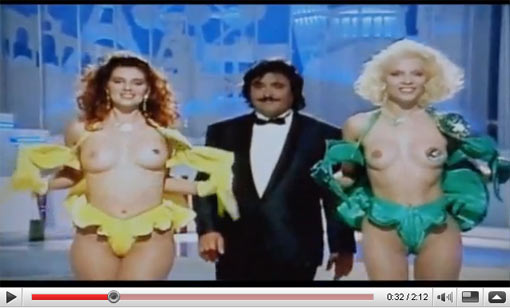This was written for Artforum‘s web site, and appeared there April 3, 2009. — J.R.

A considerable part of what’s most fascinating and enjoyable about Jim McBride’s early films is also what’s most dated and therefore forgotten about them. So it seems pertinent that McBride’s first two films, David Holzman’s Diary (1967) and My Girlfriend’s Wedding (1969), an especially (and provocatively) dialectical twosome, are available on a DVD released in the UK by Second Run (full disclosure: I wrote the liner notes) but can’t be found on their home turf.

The first of these movies virtually launched the American pseudo-documentary long before postmodernist skepticism ungracefully redubbed the form “mockumentary” (and only a couple years after Peter Watkins’s more earnest pseudo-documentaries Culloden [1964] and The War Game [1965], made for the BBC). The title hero (L. M. Kit Carson) — a compulsively diaristic filmmaker who offers his own life for inspection, scaring away his girlfriend in the process — is, like McBride himself, smitten with the textures of the present moment, which ultimately makes him a doomed figure. Some 1960s audiences found him so compellingly believable that they could even accept Holzman, in the final sequence, having lost his Éclair and Nagra, reduced to recording his face and voice in a penny arcade — even though it is left unexplained how these abject substitutes could get conveyed to us on film. Read more

Having deliberately gone cold turkey with television since I shifted operations to Richmond, Virginia almost six weeks ago, I find it a strange experience to watch Erik Gandini’s 2009 documentary Videocracy on a small, multiregional DVD player — a hate letter of rage and disgust about Silvio Berlusconi, TV, and celebrity culture that premiered in Venice a little over a year ago and will be released on DVD in the U.S. by Lorber on September 27. (In the U.K., the DVD is being released by Second Sight.)
The reason why I’ve sworn off television, at least for the time being, is my own rage and disgust about the way that American television now caters to and encourages everybody’s rage and disgust about the state of the nation, whether this happens to be the Fox News version or the MSNBC version (the Fox News of the left), so that back in Chicago, even my respect for Rachel Maddow was getting tested nightly whenever she wound up with many of the same talking points as Keith Olbermann (or as Bill O’Reilly, for that matter). The aberration of Italian TV that’s being shown by Gandini is made to seem both better and worse: better because it seems more infatuated with euphoric and unabashedly childish fantasies, and worse because so many of these fantasies seem to consist of vulgar and sexist wet dreams of male empowerment. Read more
Written for a special retrospective issue of the French film magazine Positif at the request of editor Michel Ciment in June 2002. — J.R.

1974, the year in which I contributed a short article about -— and accompanying interview with —- Jim McBride for the avril [April] issue of Positif (no.158), was also the year in which I moved from Paris (where I had been living as a freelance writer, with mixed success, since 1969) to London (to work on the staffs of Monthly Film Bulletin and Sight and Sound at the British Film Institute): a profound cultural shift, though not nearly as radical as it was moving from London to San Diego in early 1977.

Cinematically speaking, it was the year in which I discovered two of Jacques Rivette’s greatest films — Céline et Julie vont en bateau (seen initially as a workprint, tentatively entitled Céline et Julie vont en zizanie at several private screenings at Claude Lelouch’s Club 13, thanks to my friendship with one of the screenwriters, Eduardo de Gregorio) and Out 1: Spectre (initially at the Palais de Chaillot Cinémathèque, a press show where the 16mm projectors kept breaking down repeatedly; then many more times at Studio Gît-le-Coeur, only a short hop from my sunless flat on Rue Mazarine, where, along with Gilbert Adair and Lauren Sedofsky, I would later interview Rivette for Film Comment). Read more





